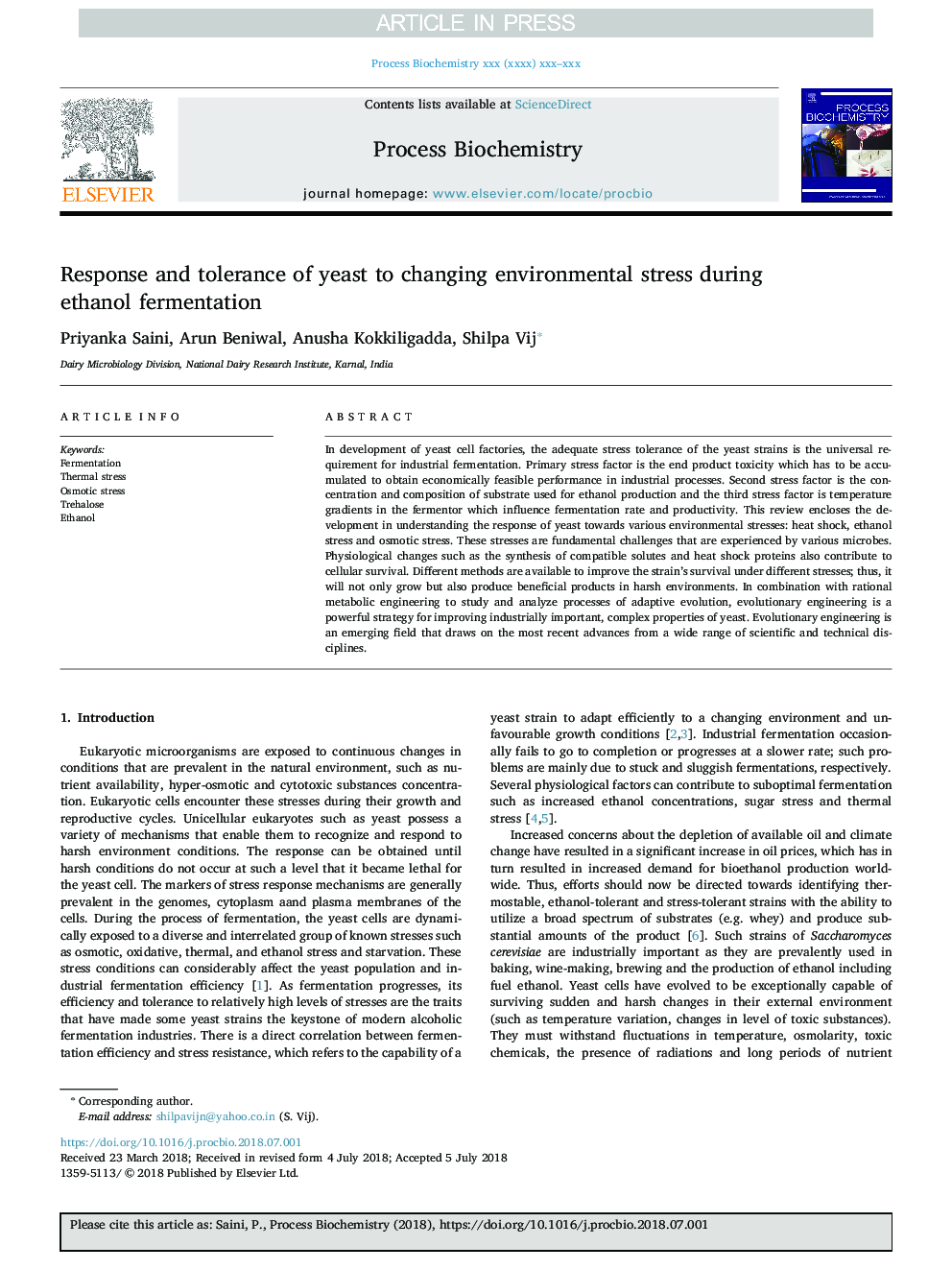| Article ID | Journal | Published Year | Pages | File Type |
|---|---|---|---|---|
| 6494967 | Process Biochemistry | 2018 | 12 Pages |
Abstract
In development of yeast cell factories, the adequate stress tolerance of the yeast strains is the universal requirement for industrial fermentation. Primary stress factor is the end product toxicity which has to be accumulated to obtain economically feasible performance in industrial processes. Second stress factor is the concentration and composition of substrate used for ethanol production and the third stress factor is temperature gradients in the fermentor which influence fermentation rate and productivity. This review encloses the development in understanding the response of yeast towards various environmental stresses: heat shock, ethanol stress and osmotic stress. These stresses are fundamental challenges that are experienced by various microbes. Physiological changes such as the synthesis of compatible solutes and heat shock proteins also contribute to cellular survival. Different methods are available to improve the strain's survival under different stresses; thus, it will not only grow but also produce beneficial products in harsh environments. In combination with rational metabolic engineering to study and analyze processes of adaptive evolution, evolutionary engineering is a powerful strategy for improving industrially important, complex properties of yeast. Evolutionary engineering is an emerging field that draws on the most recent advances from a wide range of scientific and technical disciplines.
Related Topics
Physical Sciences and Engineering
Chemical Engineering
Bioengineering
Authors
Priyanka Saini, Arun Beniwal, Anusha Kokkiligadda, Shilpa Vij,
